Is your home about to get a lot smarter?
- Published
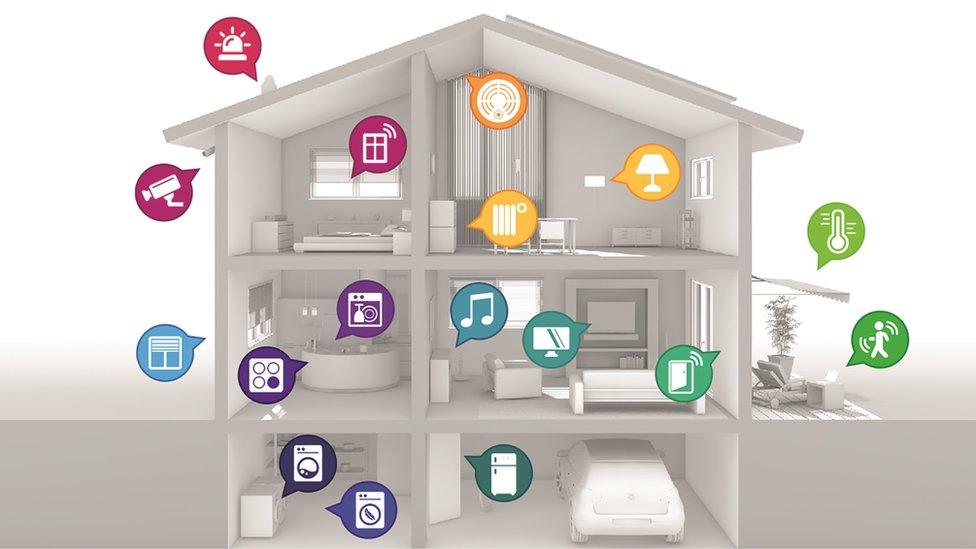
Gartner forecasts that there could be more than 500 connected devices in the home by 2022
You're driving home from work. Your connected car pings your estimated time of arrival to your smart home, which springs into life.
The thermostatically controlled heating comes on; your chosen lighting scheme glows welcomingly; the oven begins warming up the casserole you cooked the night before.
When you arrive the garage door swings open automatically and your car self parks; your front door opens automatically, too - the facial recognition security system identifies you - no more fumbling for keys.
As you enter your nicely warmed home - dust-free courtesy of robot vacuum cleaners - music wafts through each room to suit your mood.
This is one vision of the smart, or connected, home. But how realistic is it and how soon could it happen?
Mass market
All of the technologies making such a scenario possible are here already, says Holger Knoepke, vice president of connected home for German telecoms giant, Deutsche Telekom.
His company has just launched a report highlighting the huge business opportunity, external it believes the connected home presents for retailers, insurers, manufacturers, utilities and telecoms companies.
"We realised that the smart home will be a mass market - 50% to 80% of people say they're interested in smart home services," says Mr Knoepke.
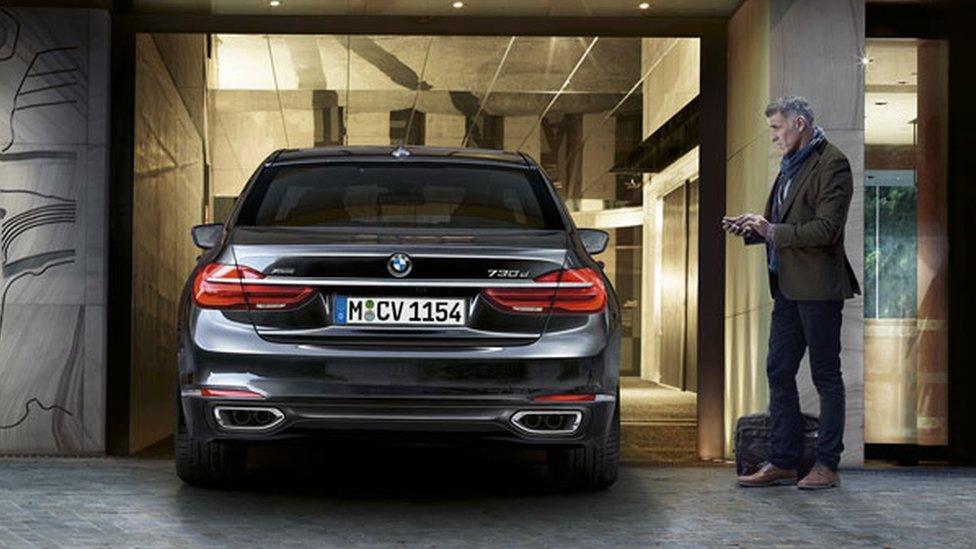
Your self-parking car will also be able to switch on devices in your home
"They could end up paying €5 to €10 a month, which equates to more than €15bn (£11bn; $17bn) a year in Western Europe by 2019."
His firm is developing an open platform, similar to Samsung's SmartThings, to act as a gateway for all these connected gadgets, from motion-detecting lighting systems to smart energy meters.
Nearly 40 partners, including big names such as Philips, Bosch, Sonos and Samsung, have signed up to the platform so far.
BMW is already testing car-to-home communications in its 7 Series luxury saloon.
Energy saving
But it seems we've been talking about the connected home for years. Why hasn't it taken off yet?
Well, we didn't have smartphones, fast home wi-fi or a wide-enough selection of gadgets equipped with networked computer chips, believes Mr Knoepke.
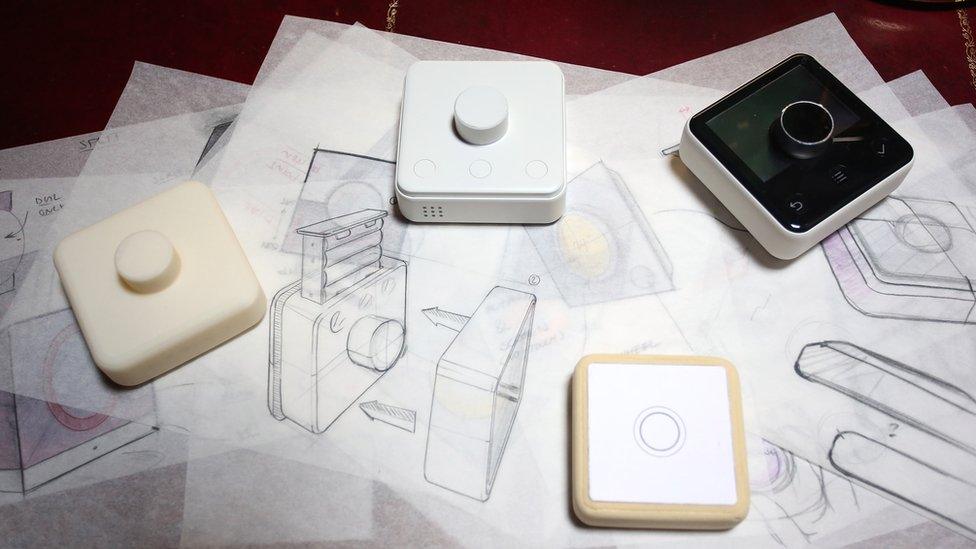
Yves Behar's smart thermostat designs for British Gas subsidiary Hive
Now, the conditions are right, he says.
Smart meters and thermostats - given an added push by governments - will be able to regulate energy usage in the home, and it's this ability to save on heating and electricity bills which will be one of the key drivers of growth in connected home technology, he believes.
Michael Philpott, principal analyst at technology research firm, Ovum, agrees saying: "By 2020 the majority of us will have a smart energy meter and smart thermostats, and other devices will be connected to it, such as your fridge, so it becomes more efficient in its energy consumption.
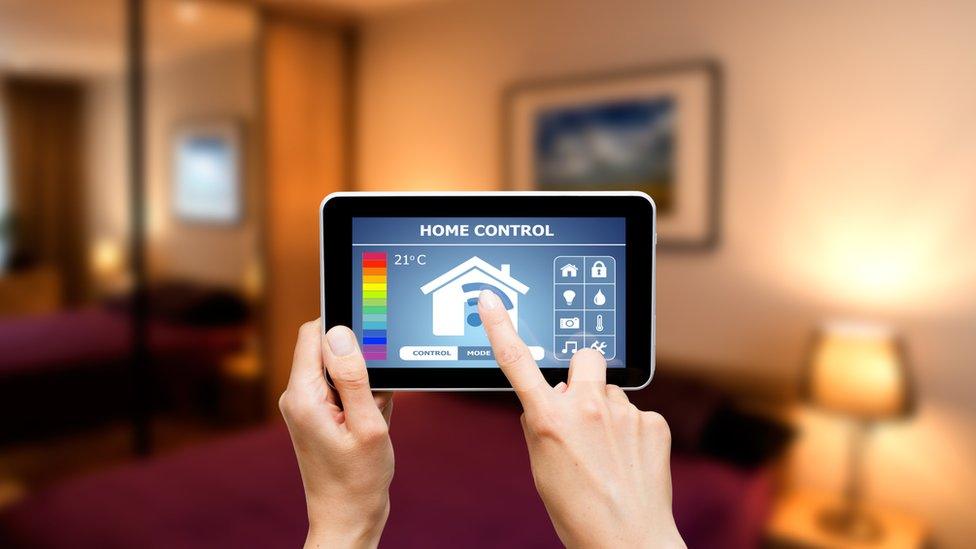
Touchscreen portable devices have brought the smart home closer
"Once consumers start to use this technology they'll start to wonder what else can they do with it."
Smart everything
As more of us use smartphones and apps, retailers and manufacturers are gaining confidence that there is a market for connected products, argues Steve Macdonald, marketing director of Hoover's "white goods" division.
The kitchen appliance manufacturer recently launched Hoover Wizard, its family of wi-fi enabled machines that can all be controlled by an app.
"It's all about staying in touch with your home even when you're out," he says. "Say you get an alert telling you the washing programme has finished, you could press a button on the app to recycle the washing to keep it fresh."
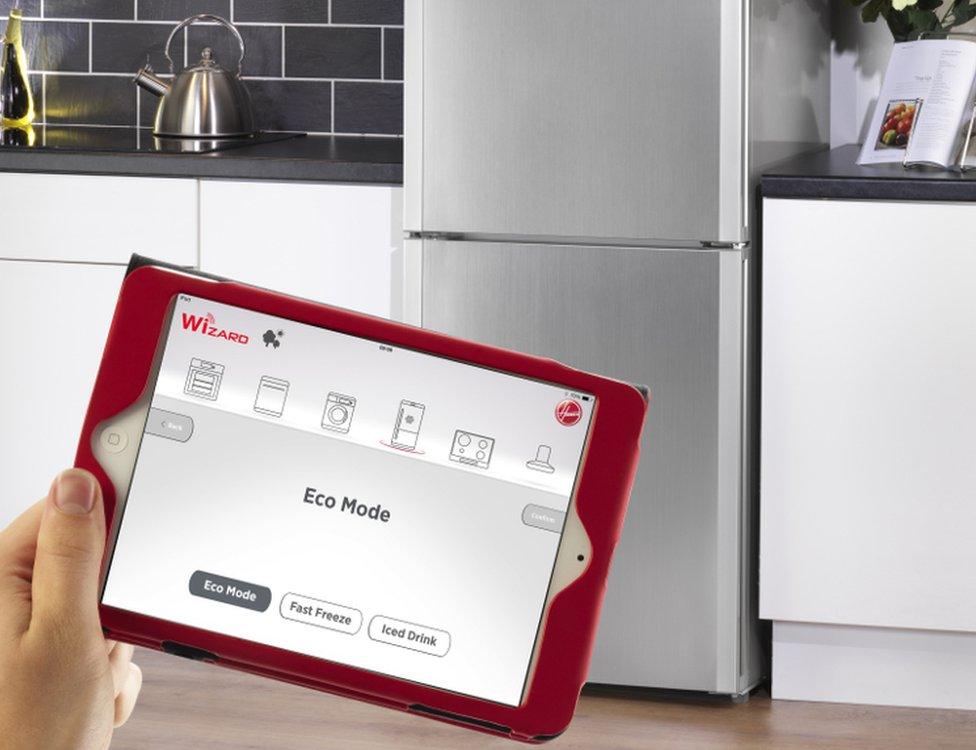
The Hoover Wizard app allows users to control and manage a number of kitchen appliances
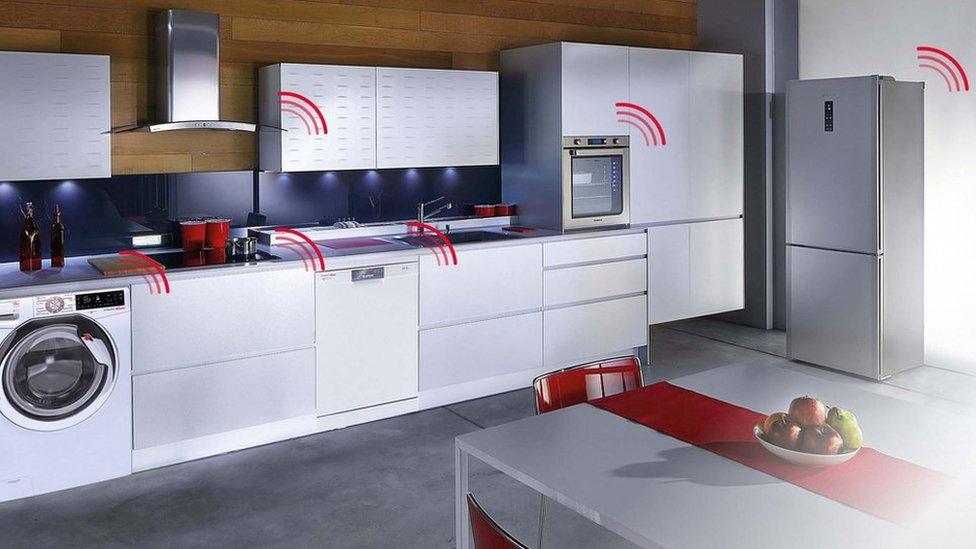
But is this 'nice-to-have' or 'must-have' technology?
In another example, he says you could set a lower fridge temperature when you're on your way back from doing a big supermarket shop. And the oven will alert you when it needs cleaning.
But isn't this sort of functionality "nice-to-have" rather than "must-have"?
"People have exceptionally busy lives so this kind of remote control gives you a little extra time," argues Mr Macdonald.
"We believe the market will move quite quickly - by 2017 all our white goods will be connected. The whole market will have gone that way by 2020."
Remote security
But the service most likely to propel the smart home into the mainstream is home security, some believe.
US telecoms giant AT&T is building its Digital Life smart home product around security, offering subscribers video cameras, window and door opening sensors, remote door locking, and motion detectors, all operable from a smartphone, tablet or PC.
"Many service providers are starting off with security, because there's an existing home security business model in place," says Mr Philpott.
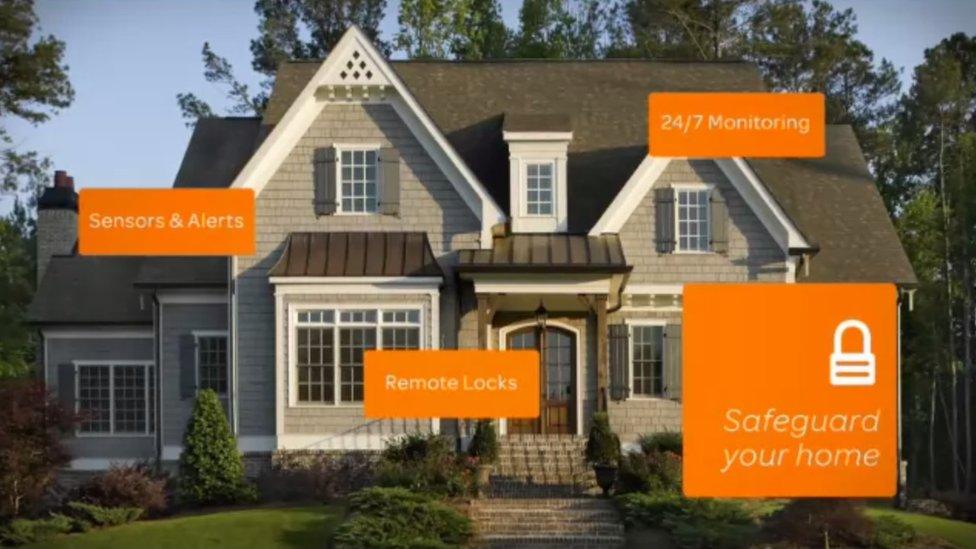
AT&T's Digital Life service focuses on home security
"In the UK about 30% of homes have some kind of home alarm, and about 10% of those pay monthly for a professional home security service."
Security is also a big concern in Germany, says Mr Knoepke: "Our market research tells us people are very interested in home monitoring because burglary is going up ...people are afraid."
And it's not just security against burglars that matters - remote alerts from smoke, carbon monoxide, and water leak detectors could all help nip household disasters in the bud, reducing insurance pay-outs and potentially saving lives.
Talk to me
But lack of interoperability could be one reason why the smart home boom takes longer to happen than some analysts and tech companies are forecasting.
Deutsche Telekom says this is why it's gone for an open platform approach rather than a proprietary system that only works with gadgets made by one or two manufacturers.
WATCH: How technology could make it easier to have a connected home
Apple and Amazon, on the other hand, seem to want to create their own ecosystems.
Other tech companies have been banding together to agree common standards to allow all these gadgets to talk to each other in a language they can all understand.
The only problem is they've been banding together in separate groups.
In 2013, the Linux Foundation formed the AllSeen Alliance along with Qualcomm, LG Electronics, Panasonic, Sharp and others.
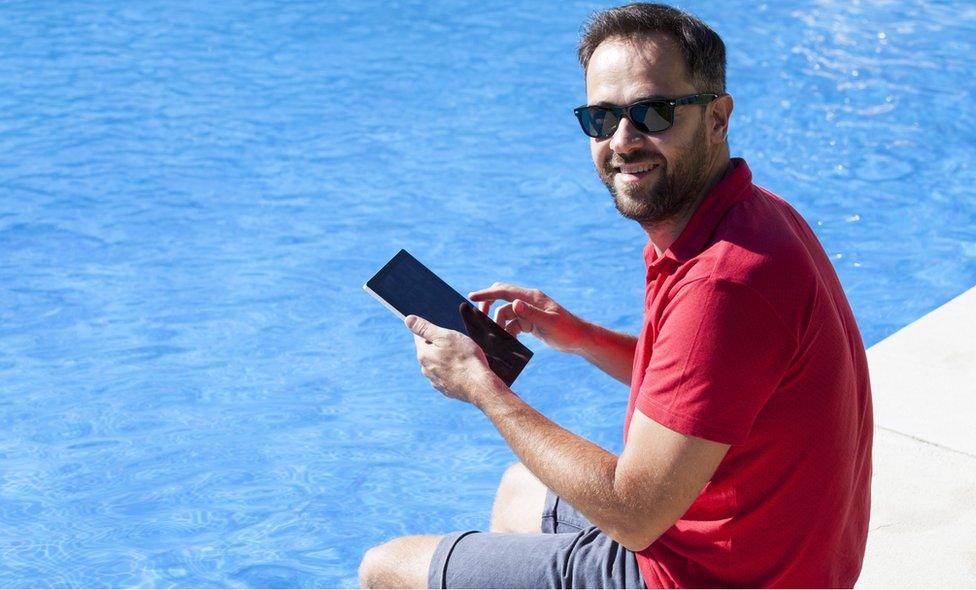
The technology enables you to check on your home at your own leisure
The following year, Google's Nest, Samsung and others formed Thread, while a group comprising Intel, Samsung, and Dell formed the Open Interconnect Consortium.
And the Home Gateway Initiative, set up by broadband service providers, has been going since 2004.
"Anything that confuses the consumer will be a barrier," says Mr Philpott. "Consumers are only going to buy into the smart home if it makes their life much better or much cheaper.
"We're not there yet."

Follow Matthew on Twitter: @matthew_wall, external